Jill Rosenwald’s Colorful Pottery
With a personality as bold as her pottery, Boston’s Jill Rosenwald forges ahead.
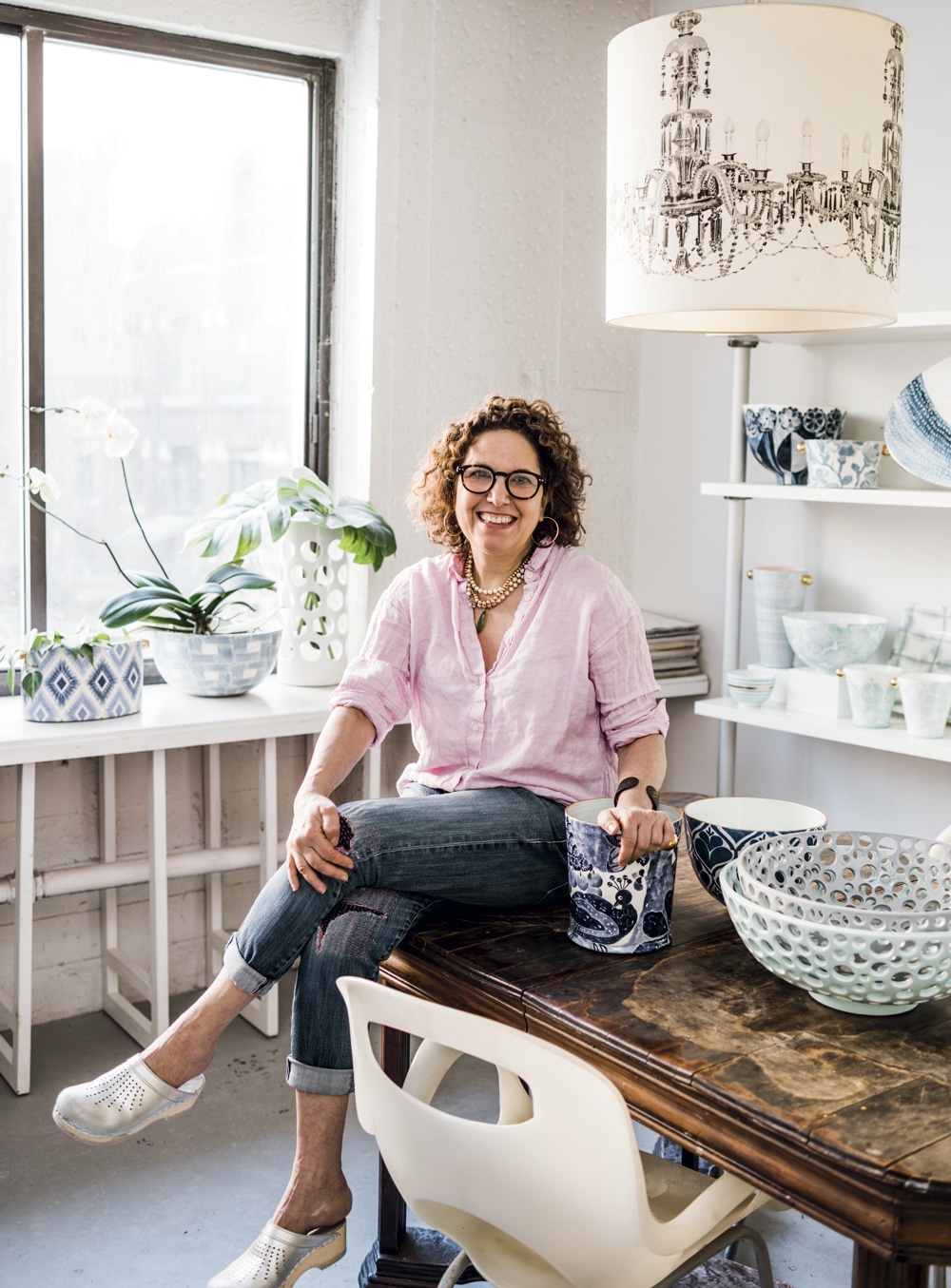
Jill Rosenwald in her Boston studio.
Photo Credit : Michael PiazzaThere were police involved. Samples taken. Incriminating jewelry.
“You really want to go there?” Jill Rosenwald challenges me, laughing, as we rewind to the first glimmers of what would become her upscale pottery business—one that has survived the ebb and flow of economics, shifting design aesthetics, and, most recently, a pandemic.
Rosenwald’s handiwork is instantly recognizable in stores from Cape Cod to California. It straddles an almost impossible divide, managing to be both bold and noncombative. While these are ceramics with big personalities, they play well with others too—not just each other, but also a client’s decor. Here are ikat-patterned bowls shaped like beehives, tapas trays that relax in a Delft-blue haze, vases splashed with pink diamonds or chartreuse plaid. They embody positivity, a feeling of visual happiness. It seems Rosenwald, keenly tuned to the zeitgeist, can’t quite keep her own vivacity out of the mix.
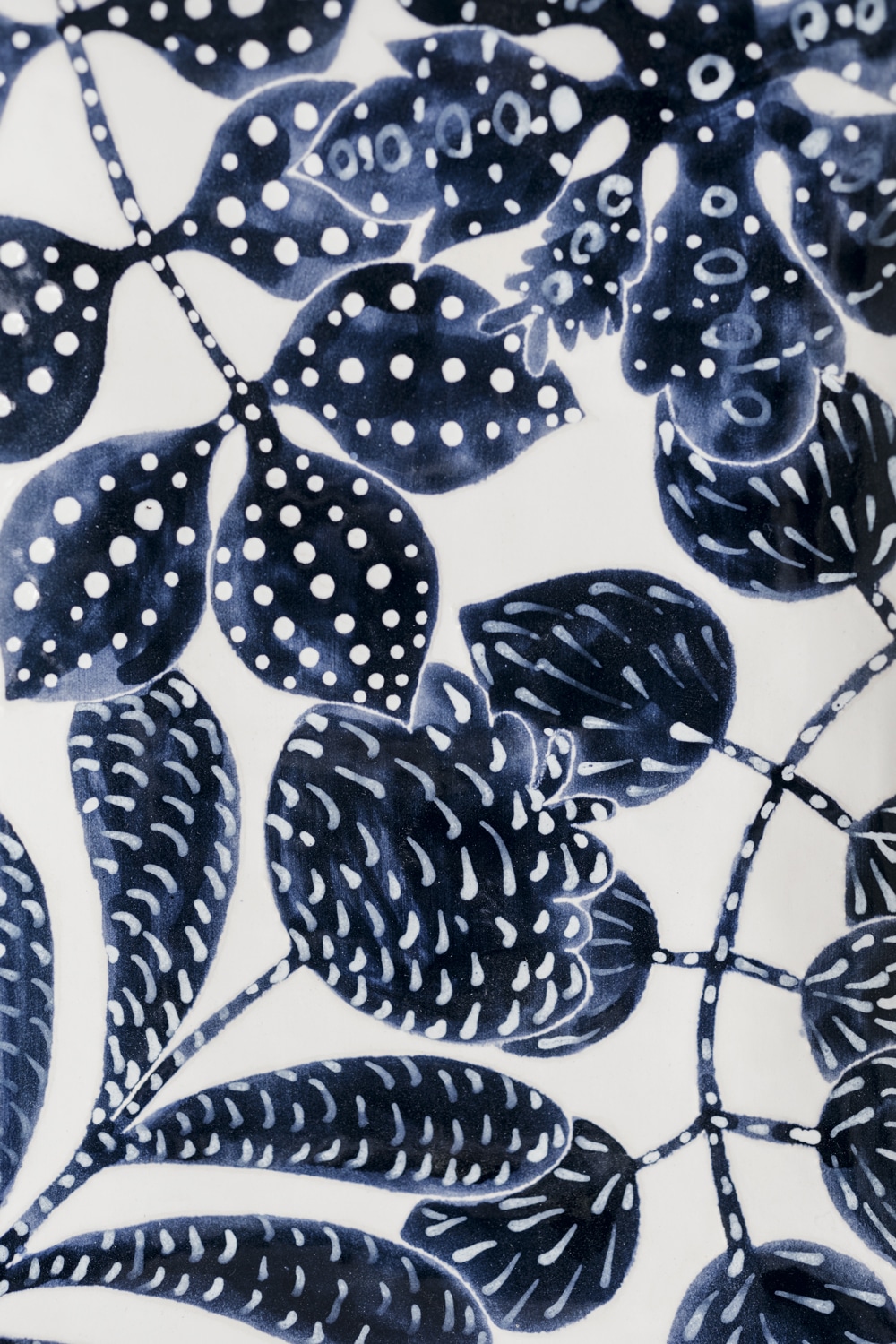
Photo Credit : Michael Piazza
Of course I want to go there.
“I was 21,” she says. “It was the ’80s. I made ceramic jewelry and sold it on the sidewalk in New York City. I was a great success, because I was a little hustler. ‘Get your red-hot earrings!’” She pauses, practically gleeful. “Then we got stopped by the cops! They took samples for evidence. That was a big thing—they took evidence samples!”
Today Rosenwald sits over the sidewalk, in a 6,000-square-foot, second-story studio in Boston’s Fort Point Channel neighborhood, with glimpses of the water. She inhabits a world of patterns, templates, and shapes, with names like Versailles, West Palm, Swoosh. A color chart on the wall twinkles with shades of New Moss, Tidepool, and Pinkie Swear. The sunny space rambles away into smaller rooms, where a small crew has spread out during Covid. Here is the kiln room; over there, designer and studio production manager Ichiko Kato, who’s been with Rosenwald for 20 years, is painting intently; John Papin, a potter, occupies yet another distanced spot. Rosenwald’s husband, Lawrence McRae, has his pottery studio here too. In “normal” times, there’s a public showroom that pulses with her vibrant pieces and his ceramic bowls and lamps.
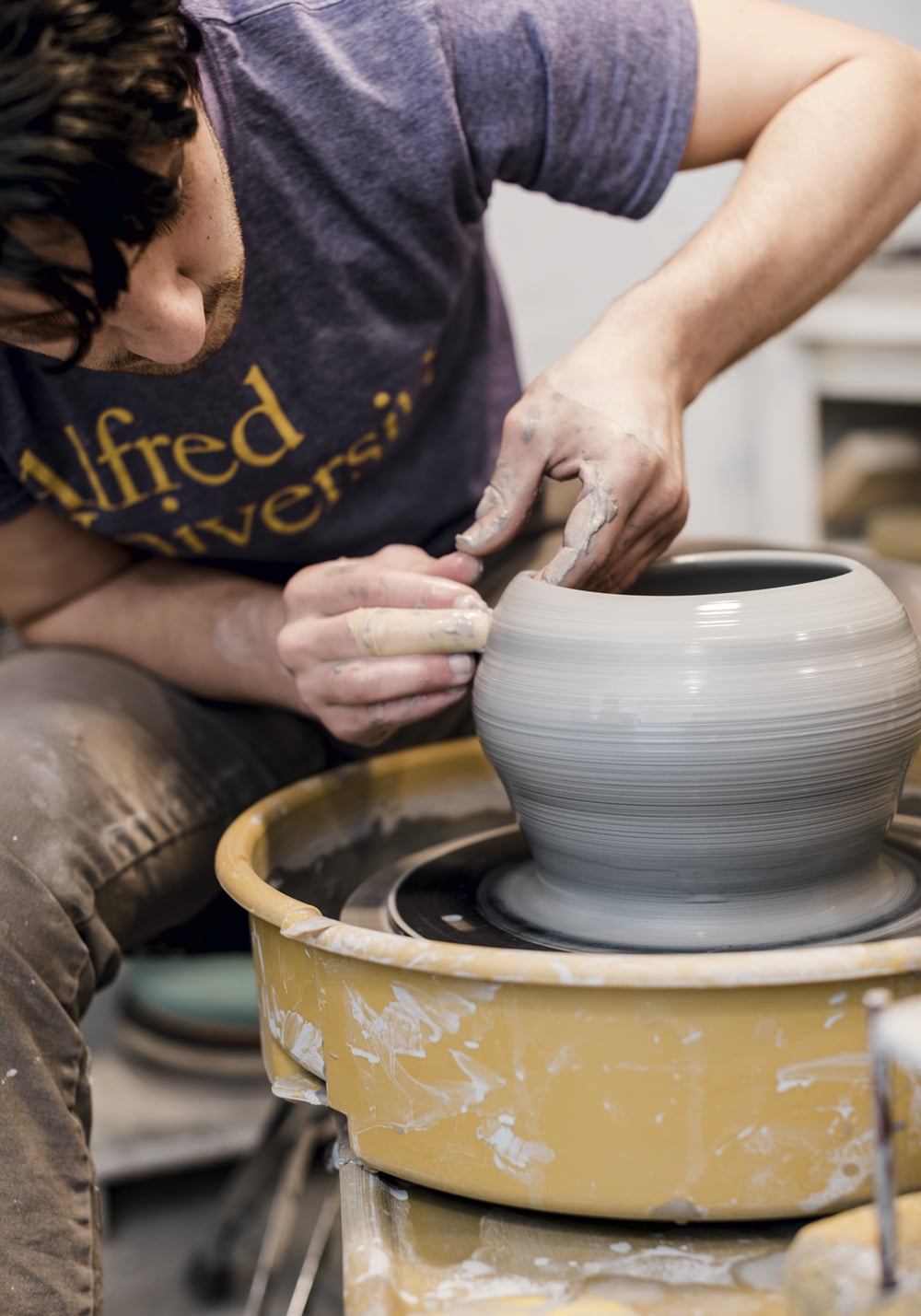
Photo Credit : Michael Piazza
After that auspicious sidewalk debut, Rosenwald got serious, sort of. She began making colorful patterned bowls, did a trade show, got picked up by Neiman Marcus. She was off and running, a hit with retailers. “Super-whimsical,” she says, ruefully, of that early work. In the ensuing years, there were a “zillion” iterations, including a “space alien” phase, then Emilio Pucci, Matisse, Frida Kahlo. “My work was like 400 colors, decorated within an inch of its life.”
But when the economy tanked in 2008, orders dried up. “Suddenly everyone went out of business,” Rosenwald remembers. To survive, she returned to the streets. She did a thousand trunk shows, and she started selling directly to consumers, paying attention to what they wanted. “That was eye-opening,” she says. “I had to ask myself, What am I really in the business of? Is it for the customers, or me?”
The answer? “I’m here to make something beautiful for other people,” she says, emphatically. “Before, I wasn’t that connected to what customers wanted. But by going directly to them, I got to hear what they were saying.”
Her designs became simpler, more textural. She dialed back the colors, paring them down to just two. “In the beginning, I wanted my work to be shouted,” she says. “Like the insecure person who’s really in your face. And now, I don’t need that at all. I want to be quieter, less intrusive. I want it to be about them. So there’s an effort to make my pieces interesting without being overwhelming.”
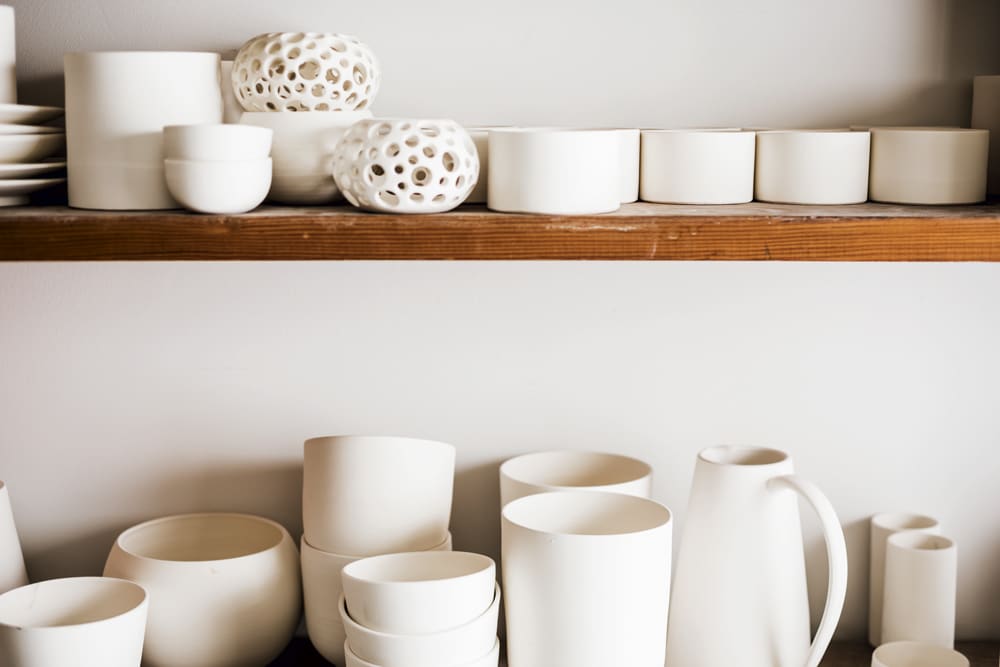
Photo Credit : Michael Piazza
When the pandemic hit and retail accounts dried up, Rosenwald scrambled once again to adapt. And once again, she went directly to customers, this time via Instagram. “We had well over 100 pieces” when the shutdown came, she says. “We took photos of everything in the studio and made it all available online that weekend. We told people, ‘Look, this is what we’re doing to survive.’” Customers bought everything. In an hour and a half. It was a revelation—that she could hop onto Instagram and announce “a sale on things that are pink, on Saturday,” and people would show up online. One more survival tool.
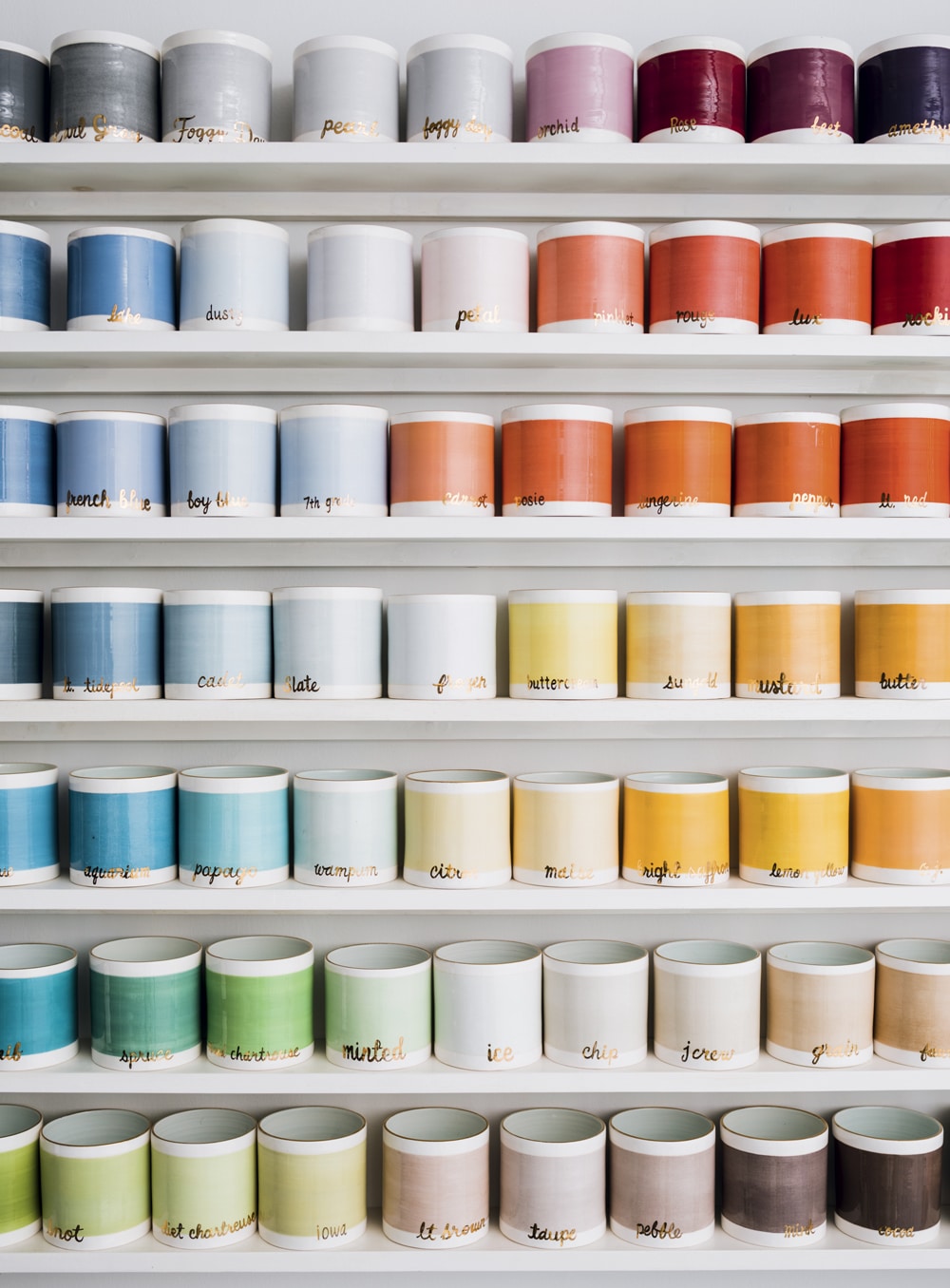
Photo Credit : Michael Piazza
In our last moments of conversation, we talk about colors for 2021. Pantone has made its yearly prediction, calling for medium gray and bright yellow. “I don’t see that happening,” says Rosenwald. “I think, post-Covid, people will be ready to see things that are more exciting, happy, and positive. Maybe a bright green, for renewal—I have this color called Lagoon, it’s very happy. And this other called Bright Kiwi….”
She drifts off for a second, then snaps back. “You know, my work is never going to be silent,” she admits. “No matter how quiet I am in my work, it’s still noisy, cause I’m noisy. I’m like a noisy, loud Jewish broad. Like, you know, that should be the title of your story: Noisy, Loud Jewish Broad Who Makes Pots.” She pauses. “You’ll make it sound nice. It’s so true.” jillrosenwald.com
Win a piece of Jill Rosenwald Pottery!
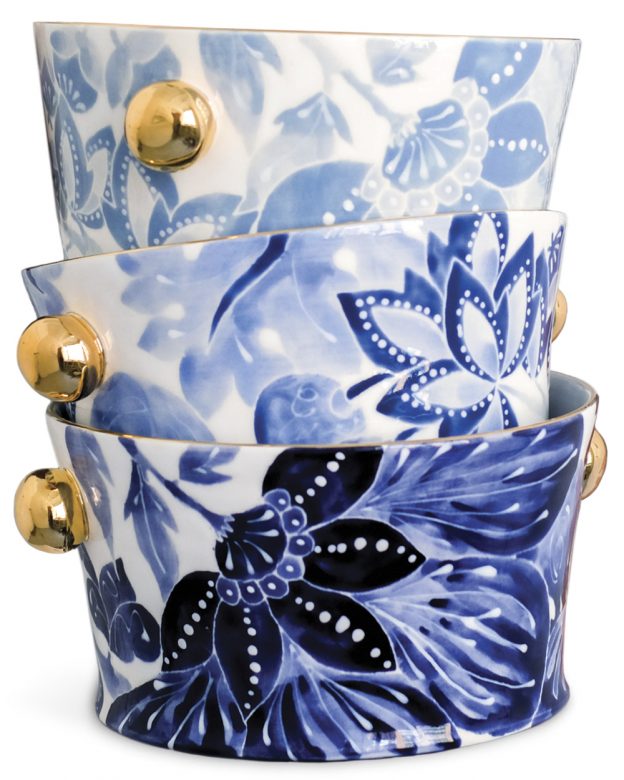
Want to brighten up a corner of your home with one of Jill Rosenwald’s handcrafted creations? Thanks to Yankee’s Summer Pottery Giveaway, you could win a Le Bird Cache Pot in Delft Blue.
Entries not accepted until July 18th. Giveaway runs July 18–August 1, 2021. To enter, go to: newengland.com/summerpotterygiveawayAnnie Graves
A New Hampshire native, Annie has been a writer and editor for over 25 years, while also composing music and writing young adult novels.
More by Annie Graves

